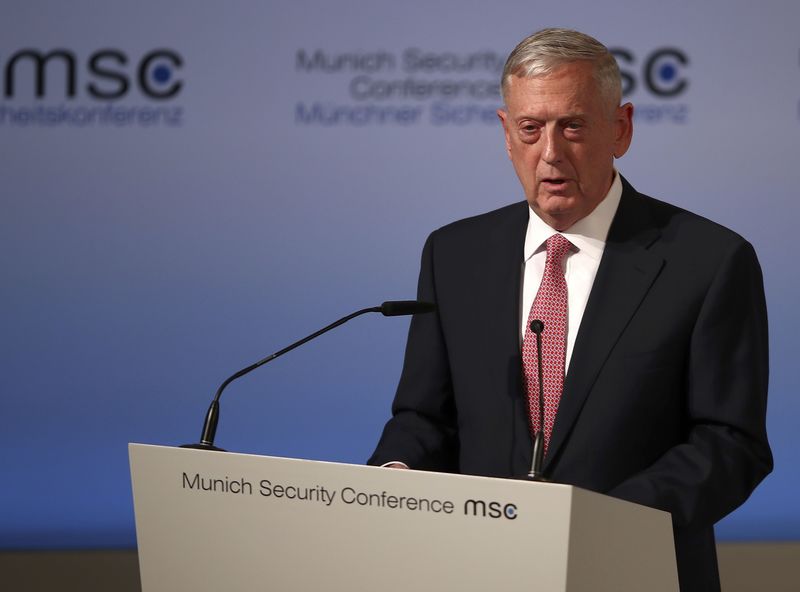By Phil Stewart
ABU DHABI (Reuters) - U.S. President Donald Trump's defense secretary said bad weather had forced him to scrap a visit to Afghanistan on Sunday but added that he was reviewing the next steps in the war after discussions with Afghan President Ashraf Ghani and the top U.S. commander.
"We're putting our thoughts together now," Defense Secretary Jim Mattis told reporters in Abu Dhabi during his debut trip to the Middle East.
U.S. General John Nicholson, the commander of U.S. and international troops in Afghanistan, said this month the NATO-led force in Afghanistan had enough troops to carry out counterterrorism missions but had "a shortfall of a few thousand" for its major role of advising Afghan security forces.
Mattis said he spoke for several hours on Sunday via video-link with Nicholson, but did not disclose whether he was in favor of sending more U.S. forces there. Mattis also said he spoke with Ghani "at length" before leaving Munich, Germany, on Saturday.
So far, Trump has offered little clarity about whether he will approve more forces for Afghanistan, where some 8,400 U.S. troops remain more than 15 years after the Islamist Taliban government was toppled.
"He's waiting for my assessment and the assessment from the intelligence community and he's open to my advice on it," Mattis said. "But first of all I’ve got to formulate where I stand."
Afghan government forces control no more than two-thirds of national territory, and have struggled to contain the Taliban insurgency since the bulk of NATO soldiers withdrew at the end of 2014.
The government is also struggling with other militants, particularly from Islamic State's Afghanistan branch. Islamic State claimed responsibility for a suicide attack that killed at least 22 people on Feb. 7 outside Afghanistan's Supreme Court.
A number of provincial capitals have been under pressure from the Taliban and Afghan government forces have been suffering high casualty rates, with more than 5,500 killed in the first eight months of 2016.

"The Afghan security forces paid a very heavy price to keep the Taliban on their back foot. But they paid it, they held," Mattis said. "And the Taliban's in a worse position today, even though I do not equate that to success on our side."